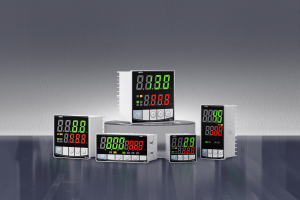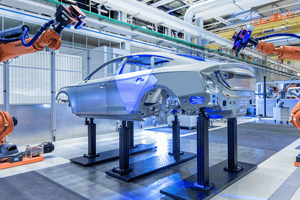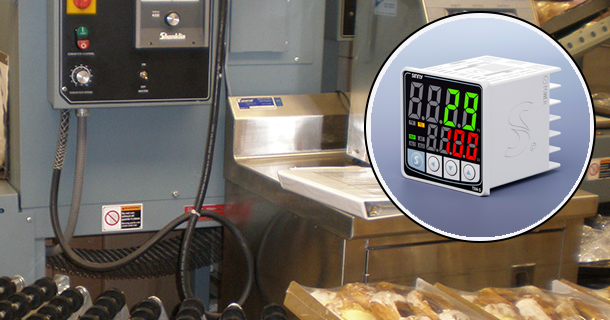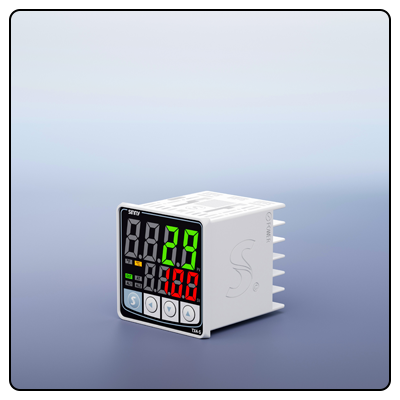How Temperature Controllers Improve Operational Efficiency
Explore How Temperature Controllers Increase Operational Efficiency Learn how temperature controllers help improve operational efficiencies across industries by uncovering their many advantages, advanced features and real world applications in manufacturing, food processing, pharmaceuticals and HVAC systems.
1. Introduction
Temperature controllers are indispensable tools in various fields for maintaining consistent temperatures, leading to improved operational efficiencies by guaranteeing peak performance and decreasing waste. Here we explore their role and their benefits across numerous fields.
2. Understanding Temperature Controllers
Definition and Function: Temperature controllers are devices designed to regulate temperature by taking readings against their set point, making adjustments accordingly, and maintaining target parameters within their reach. They can be invaluable tools in processes where temperature stability is key.
Temperature Controller Types: There are various kinds of temperature controllers designed for specific tasks. Common examples are On/Off controllers, Proportional controllers and PID controllers - familiarizing yourself with all available choices will help ensure an appropriate unit can meet the demands of your application needs.
3. Key Benefits of Temperature Controllers
Accuracy and Precision: Temperature controllers offer several distinct benefits in accuracy and precision for product quality assurance by maintaining precise temperatures at specific levels, helping eliminate variations or defects and increasing efficiency for greater productivity and results.
Temperature controllers enhance process optimization by maintaining optimal temperatures during an operation, helping minimize expenses while increasing overall productivity and output of operations.
Energy Efficiency: Temperature controllers increase energy use efficiency by maintaining optimal temperatures to decrease costs while meeting sustainability goals, providing companies with an ideal way to enhance sustainability efforts with reduced operational expenses and greater sustainability goals.
Temperature Control Brings Safety and Reliability Together: Temperature controllers improve both safety and reliability by mitigating overheating or underheating risks to equipment, thus decreasing downtime risks, while simultaneously increasing reliability by maintaining uninterrupted operations without interruption or discontinuity; providing smooth processes across operations without compromised reliability.
4. Industry-Specific Applications
Manufacturing: Temperature controllers play an essential part in maintaining consistent temperatures across equipment such as ovens and furnaces to guarantee product quality, reduce wastefulness and maximize efficiencies.
Food & Beverage Industries: Precise temperature regulation is paramount in food and beverage manufacturing industries to ensuring food safety, quality and adherence with regulations. Temperature controllers play a significant role in maintaining processing and storage operations within appropriate temperature parameters to guarantee compliance and guarantee optimal conditions for operations.
Pharmaceutical Products: For optimal efficacy and safety when it comes to pharmaceutical products, temperature controllers offer ideal storage conditions in order to preserve both efficacy and integrity of temperature-sensitive drugs without impacting other products' efficacy or integrity.
Temperature Controllers Enhance energy efficiency and comfort in both residential and commercial properties by keeping temperatures consistent at all times, thus optimizing energy use while improving indoor air quality.
5. Advanced Features Enhancing Efficiency
Adaptive Control Algorithms (ACAs): Temperature controllers equipped with these algorithms can automatically adapt their control parameters based on changing environmental conditions for maximum performance and stability even in dynamic environments.
Remote Monitoring and Control: Thanks to Internet of Things and Cloud technologies, modern temperature controllers can now be remotely monitored and controlled for greater convenience and efficiency for end users. Real-time adjustments are possible from anywhere; end users can monitor performance from any distance while making real-time modifications for maximum ease and effectiveness of operation.
Data Logging and Analysis: Modern temperature controllers feature features designed to log temperature data over time for analysis and process optimization purposes, offering invaluable assistance when looking for trends, diagnosing issues, or optimizing processes more quickly. Modern temperature controllers make an especially great tool to quickly discover these trends or issues to maximize results more rapidly.
Self-Tuning and Auto-Tuning Temperature Controllers: Self-tuning temperature controllers offer automatic adjustments of their settings for optimal performance by learning from their process while making necessary modifications, while auto-tuning controllers quickly set optimal parameters during initial setup.
6. Case Studies and Examples
Example 1: At one manufacturing plant, PID controllers were installed to improve temperature regulation during its production process and significantly decreased product defects and waste while at the same time increasing overall efficiency and productivity; as a result this implementation contributed significantly to increased overall productivity.
Example 2: At a food processing company, advanced temperature controllers with data logging and remote monitoring features were utilized for precise temperature regulation during processing and storage of their product, drastically improving food safety while simultaneously decreasing spoilage rates.
Example 3: A pharmaceutical company implemented temperature controllers equipped with self-tuning capabilities into their storage facilities to optimize conditions for temperature-sensitive drugs, increasing efficacy and safety while decreasing product loss risk.
7. Conclusion
Temperature controllers play a pivotal role in optimizing operational efficiencies across various industries, providing precise temperature regulation to boost product quality, process efficiency and energy savings; providing access to advanced features like adaptive control algorithms, remote monitoring and self-tuning which further contribute to their effectiveness. Selecting industry specific controllers tailored specifically for individual companies' needs can result in dramatic increases in both operational performance and sustainability.
- How to Choose the Right Temperature Controller: A Comprehensive Guide
- The Role of Temperature Controllers in Modern Industry























